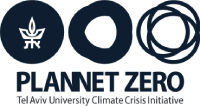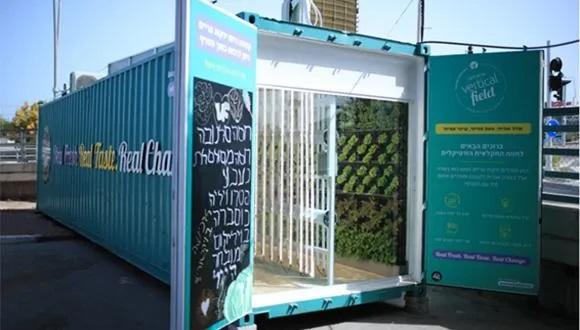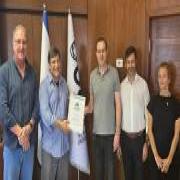Entrepreneurship and the big city
A joint online course by Tel Aviv University and the University of Genoa works to crack the challenges experienced by cities in the Mediterranean region.
What is common to a roofing sheet that creates shade during the day and light at night with electricity it created itself, to a road that charges electric vehicles that move on it, and to growing vegetables in the city on the walls of buildings? All these are smart solutions that can make our lives in cities more pleasant, economical and of higher quality. If you also have ideas of this type, it is a sign that urban entrepreneurship is burning in you and probably the free digital Smart City Online Training Course developed as part of the applied research SME4SMARTCITIES can help you make them a reality.
On March 29 2023, a special online exposure session will take place with the participation of Dr. Orli Ronen and Avigdor Sharon, where it will be possible to hear more details about the course and the SME4SMARTCITIES applied research .
How do you make a city smart and resilient?
The innovative course is an initiative of the ENI CBC MED program in the European Union, with the participation of Spain, Italy and Israel. This is an online course that is based on the integration of the experience and knowledge of academic bodies, professional experts, innovation centers and cities in the Mediterranean region - non-profit, without commercial promotion and without agendas, except for the stated goal of connecting entrepreneurial and innovative companies and cities, in order to promote innovation and sustainability in cities around the Mediterranean Sea. This is the goal of the applied research project SME4SMARTCITIES which is jointly managed by innovation centers in Spain and Italy, the Laboratory for Innovation and Urban Sustainability in the Department of Environmental Studies at Tel Aviv University and the Sustainability and Innovation Division of the Kfar Saba Municipality.
The course is offered free of charge to entrepreneurs, managers in small and medium-sized innovative development companies, and also to women and key people in municipalities who want to get to know more about the range of possibilities available to them to act for the benefit of the city.
"The main goal of the course is to give an up-to-date and comprehensive look at the 'smart cities' market, the challenges that Mediterranean cities face, areas of activity and technological trends, and to teach how to create collaborations to jointly implement systemic solutions and up-to-date approaches for a smart, healthy, immune city and attractive to residents and visitors," says Dr. Orli Ronan, head of the Laboratory for Innovation and Urban Sustainability and a team of course content writers.
The Mediterranean Sea is one of the regions that is expected to warm up in the coming decades more radically than others. Mediterranean cities face quite a few challenges. "A partial list of the problems we are trying to solve as part of the course includes the increasing urbanization due to people and families moving to the cities, the issue of mobility in the city, the decrease in environmental quality, an increase in the heat trapped inside the city (heat islands), the increasing effect of energy consumption on greenhouse gas emissions, Carbon emissions and the ecological footprint of each and every one of us are prepared for climate change and a decrease in urban resilience due to cities' dependence on external resources," explains Avigdor Sharon, also from the Laboratory for Urban Innovation and Sustainability and who took part in the preparation of the new course.
The course content was written by experts from Tel Aviv University, from the University of Genoa in Italy, from the FILSE Innovation Center in Liguria, Italy and experts with extensive experience in the fields of innovation, including Patricia Hei-Engel, an expert in business development and ecological involvement, and Shmulik Ben Tovim, an economist and social entrepreneur and the founders of the City TLV association.
It is made up of six modules on diverse topics, and is taught at a personal pace through short lessons and recorded videos with industry experts and professional organizations. At the end of each module there is a self-assessment questionnaire.
To the question why it is worth taking the course, Dr. Ronan answers that "the field of smart cities can be very confusing. The course provides a consistent and clear picture of the smart city in all its components, and provides various tools, including a comprehensive set of connections, ways to work with municipalities, learning how to participate in tenders and more."
According to Ronan, the course is based on balanced and objective research, and includes comprehensive reviews, the involvement of 34 cities, experience in creating integrated development projects with entrepreneurs and municipalities, and this is the main advantage that cannot be obtained anywhere else. Among the cities that take part in the project you can find Malaga, Genoa, Caligari, Seville and here in Israel Tel Aviv, Herzliya, Kfar Saba, Eilat and more.





